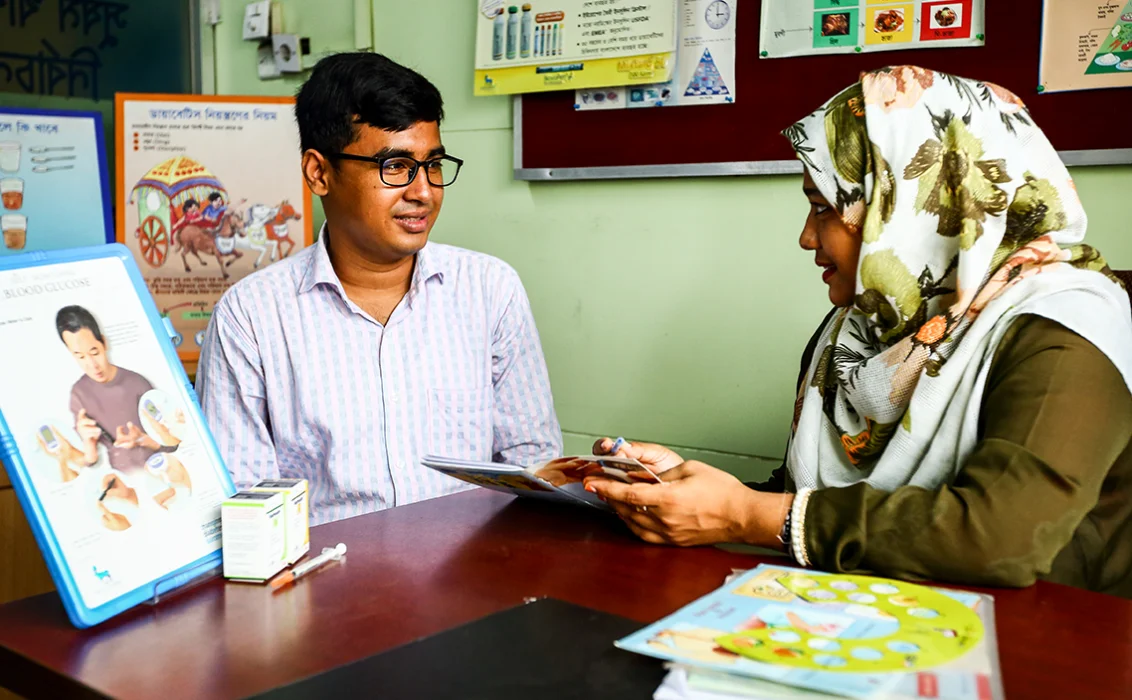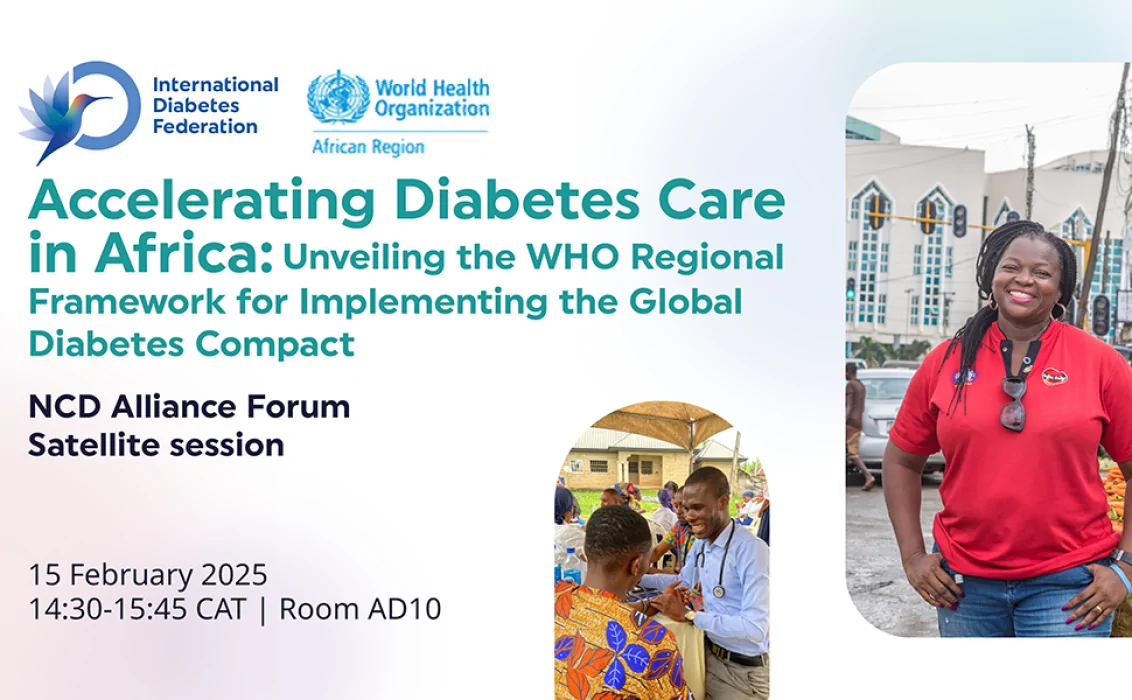Research released by IDF on World Diabetes Day reveals that 26% of people living with diabetes received insufficient information about their condition when diagnosed.
New research from the International Diabetes Federation (IDF) reveals that one in four people (26%) living with diabetes did not receive sufficient information and education about their condition when they were diagnosed. The figures also show that one in five (20%) do not receive ongoing education from their healthcare provider, leaving close to one in three (29%) without the information they need.
Going it alone
On average, people with diabetes spend around three hours per year in consultation with a healthcare professional. For the vast majority of the time, therefore, they are looking after themselves. Access to information and education at the time of diagnosis and beyond is critical to support diabetes self-care, thereby enabling people living with diabetes to effectively manage their condition. When diabetes is not well managed, the risk of serious health complications increases. These include heart attacks, strokes, kidney failure, blindness and lower-limb amputation.
Four in ten (42%) people living with diabetes reported appointments of less than 15 minutes, which is not sufficient to discuss treatment and provide advice on important topics such as diet and exercise. Furthermore, just over one in three (36%) people do not have in-person or online consultations with a diabetes educator, nurse or dietitian to receive additional information to help manage their condition.
The number of people with diabetes is growing fast. By 2030, IDF predicts that one in nine people will be living with diabetes worldwide. This places a strain on healthcare resources and may push people to seek advice through informal channels. IDF’s research suggests that one in five turn to Google (21%) and social media (20%) for their diabetes education.
“Our research reveals that people living with diabetes are looking after themselves for 99% of the time,” said Professor Andrew Boulton, President of the International Diabetes Federation. “Healthcare professionals need to make the most of the limited time they have to provide the best possible advice and care to the millions affected, while people living with diabetes need to understand their condition and keep their diabetes knowledge up to date in order to manage it effectively. We need better access to diabetes education today to protect tomorrow.”
Healthcare workers are struggling to access training
The research also shows that there is a gap in funding and investment for diabetes education for healthcare professionals. Although many doctors and nurses are trying to support people in their care by improving their diabetes knowledge, over one in three (35%) have to self-fund all of their diabetes training. Furthermore, healthcare professionals were found to lack skills in diagnosing common diabetes complications, with less than half (49%) indicating that they would recognise depression as a complication of living with diabetes.
IDF is committed to facilitating learning opportunities for all people involved in diabetes care. Free interactive courses are available to help people with diabetes and their carers to understand and manage the condition. For healthcare professionals, the IDF School of Diabetes offers a selection of free and premium online courses to help them keep up-to-date with various aspects of diabetes management and treatment. Find out more at www.worlddiabetesday.org/understandingdiabetes.



